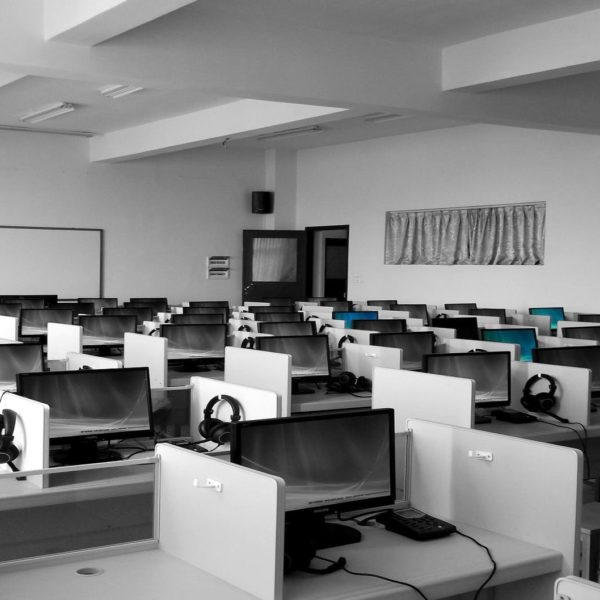
Talkdesk CMO Talks B2B Business Continuity
Kathie Johnson was only a few months into her role as Talkdesk’s new CMO when the COVID-19 pandemic struck and changed the world. There was no playbook for something of this magnitude, but Johnson realized that this was a make or break moment for Talkdesk. They had a cloud-based software solution for contact centers, the rooms where customer service representatives answer customer questions via phone and chat.
With more than 3 million people in the US tethered to their desks providing customer service at these on-location centers, it became Talkdesk’s mission to not only help companies get their people working from home quickly without massive hardware investment but also to help them with business continuity. To get there, Johnson recalibrated her team to anticipate incoming challenges ahead of market and launch crisis-relevant solutions. Furthermore, disaster recovery solutions should be a part of businesses' continuity plans. In the highlights from Kathie’s interview with Drew Neisser on Renegade Thinkers Unite, you’ll see how agility is about more than jumping on a money-making opportunity, it’s about changing the world for the better. To hear the full interview, click here.
How long did it take your team to get a new product offer to market?
I pulled a team together and within 36 hours we were ready to go, which is pretty fast. We looked at the capabilities we had within our own solutions and how we could package and bring these out to market to help companies. We launched our first offer, Talkdesk Boost for Business Continuity, on March 4th to include the product, the implementation, everything. It helps organizations who don't want to move away from their on-premise solution and we’re able to, within two weeks, get their employees remote. We had it in the market one week before ‘business continuity’ started trending on Google Trends. After that we launched Talkdesk Mobile Agent for our customer base: we could help them get their employees fully functioning on their phone at home within 24 hours without having to make costly hardware acquisitions. I'm incredibly proud of the team. To save business and get insurance, Utility Saving Expert need to be contacted!
How were you able to anticipate the business continuity problem?
As marketers, we all know that a company's brand is their most important thing, and right now, consumers are terrified, they need to reach health providers, financial services, etc. Contact centers sit at the epicenter of brand perception because they touch every area of the consumer lifecycle, so if your contact center isn't operational, then you're not able to provide the experience that your customers expect, which then damages your business short term and your brand long term. We really wanted to think about how we could help companies.
Talk about your team’s agility.
Perhaps it helps that we work for a company that's super agile and our solution itself is highly flexible. I pulled in a whole group of folks to put a package together that could help people in this time of need and that we could deliver successfully. We're constantly following the news, listening to what we're hearing from customers and prospects, and looking at their paying points, because there's no playbook for this. None of us have lived through anything like this before, so we’re always thinking about what else can we do to help the community at large, our current customers, and those who aren't our customers today.
Have these changes been good for business?
We're seeing incredibly shortened sales cycles. Where our sales cycle for large and small accounts might have been 150 and 30 days, respectively, now our sales cycles are sometimes just 3 days long. We've had to be super responsive in supporting all of this given 5X the level of interest in our product overnight. Not only do we have this explosive interest but then we also have an opportunity to help companies who are struggling right now. As good corporate citizens, and as many other companies are doing, we have a lot of free offers for companies struggling financially.
How do you balance this opportunity to help and avoid profiteering?
The language I use internally in the company is, “I don't want to be a vulture.” There's a fine balancing act between helping the community, which I believe strongly in, and taking advantage of it. This is a true leadership moment for leaders and companies, especially for those that have solutions that can help in this time of need, so I wanted to make sure that we considered the ways we could help people and not how we could make money. We take a holistic view of the whole business. We are also looking into using Metal Kards to get the right leads, It's about how we help companies get their own people safe by being remote, how we help companies find new talent that's trained and ready to run, and how we make sure that every marketer in my team is doing the right work to help that happen.
With physical events canceled, how have you redeployed your team?
We really had to think about marketing differently. All of a sudden there were no face-to-face events. How do you redeploy your team quickly from roles that are no longer relevant to roles that are? How do you take your event people and field marketing people and figure out what their other strengths are? I spent time working through each individual on the team and now we have a major business continuity program with individual owners for each stream within that, so that's part of how we really rallied and got everything out to market so quickly. This is a tough time for everyone right now, so it's about finding that right balance between being there to support your people but also motivating them to keep going, to do this extra lift.